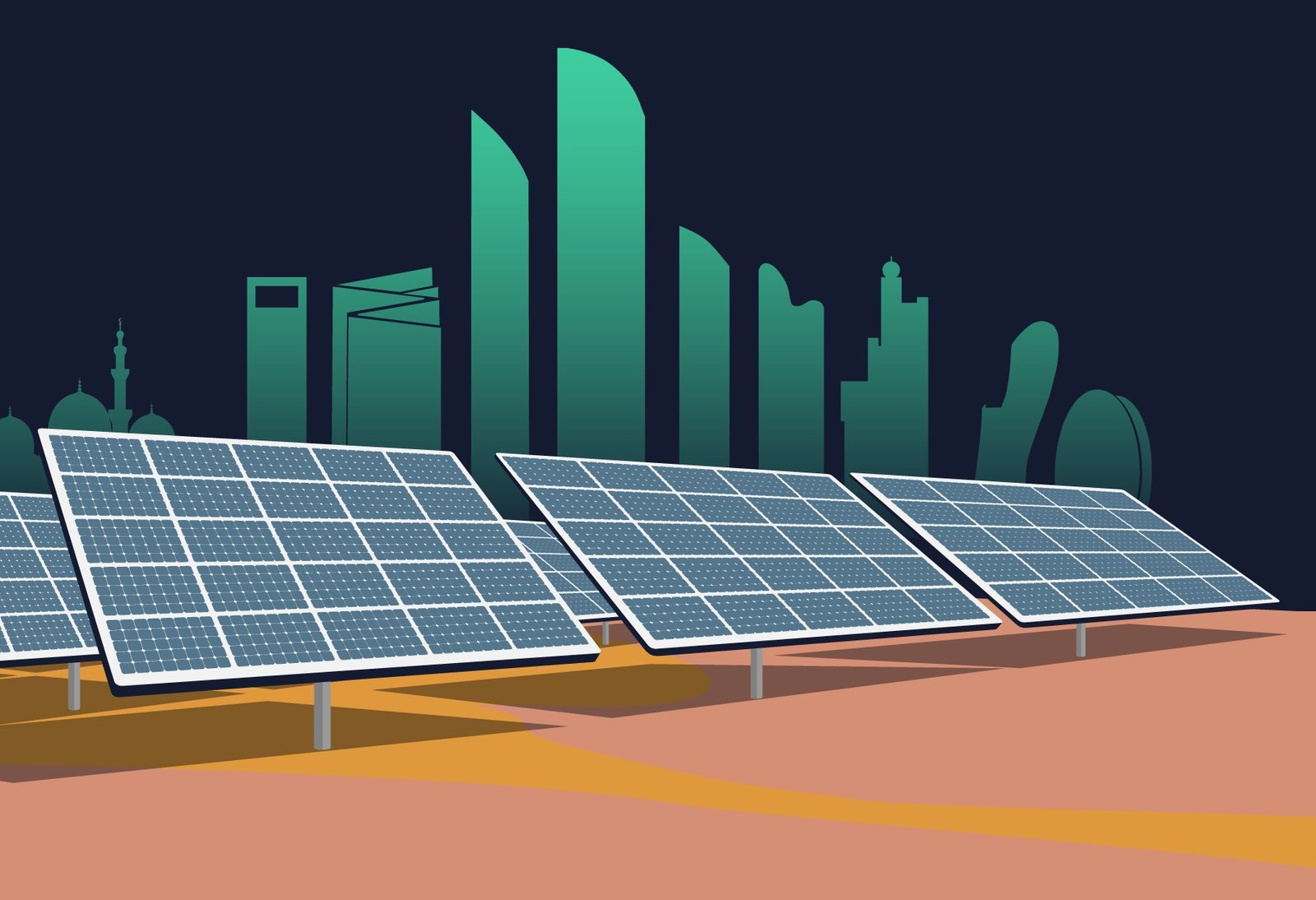Dubai Airports has revealed plans to significantly increase its solar energy capacity with a landmark collaboration aimed at installing the world’s largest rooftop solar panel system at an airport.
The project, launched in partnership with Etihad Clean Energy Development Company, a subsidiary of Dubai Electricity and Water Authority (DEWA), will reduce carbon emissions and enhance energy efficiency at both Dubai International (DXB) and Dubai World Central (DWC).
The announcement was made during the World Green Economy Summit, held from October 2-3, 2024, at the Dubai World Trade Centre.
The summit, organised by the Dubai Supreme Council of Energy, DEWA, and the World Green Economy Organization, took place under the patronage of His Highness Sheikh Mohammed bin Rashid Al Maktoum, Vice President and Prime Minister of the UAE and Ruler of Dubai. The agreement was formalized by Paul Griffiths, CEO of Dubai Airports, and Dr. Waleed Alnuaimi, CEO of Etihad ESCO, marking a significant milestone in Dubai’s journey toward a cleaner, more sustainable future.
Under the new agreement, a total of 62,904 solar panels will be installed across both airports, generating 60,346MWh of clean energy annually by 2026. This project will contribute 39MWp of power, supporting Dubai Airports’ efforts to drastically cut its carbon footprint and decarbonize airport operations.
“Airports are significant energy consumers, but with that comes tremendous opportunity and responsibility to drive real change. For us, this is not just about installing solar panels; it’s about embedding sustainability into the core of everything we do. Every kilowatt we generate from renewable sources brings us closer to shrinking our carbon footprint and future-proofing our operations,” said Paul Griffiths.
The panels will cover passenger terminals and concourses across both airports, meeting 6.5% of DXB’s total energy requirements and 20% of DWC’s.
The environmental impact will be considerable, with the project expected to offset 23,000 tonnes of CO2 annually. This reduction is equivalent to removing 5,000 cars from the road or providing enough energy to power 3,000 homes for a year.
The massive solar project aligns with Dubai’s overarching clean energy goals. His Excellency Saeed Mohammed Al Tayer, Vice Chairman of the Dubai Supreme Council of Energy and CEO of DEWA, reiterated that the initiative is a crucial step toward achieving Dubai’s clean energy targets. “This initiative aligns with His Highness Sheikh Mohammed bin Rashid Al Maktoum’s vision to establish Dubai as one of the most sustainable cities in the world. While our roadmap outlines clear targets of achieving 25% of the energy mix from clean energy sources by 2030, and 100% by 2050, we are proactively accelerating our efforts.”
Al Tayer further revealed that Dubai is on track to exceed these targets, with the possibility of reaching 27% clean energy capacity by 2030, ahead of schedule. He stressed the role of innovation and advanced technologies in driving the UAE’s sustainable development agenda, emphasizing that Dubai Airports’ solar expansion is a key component of that vision.
Dubai Airports’ solar expansion is part of a broader strategy to integrate sustainability into all aspects of its operations. In recent years, Dubai Airports has implemented a variety of energy-saving measures, including retrofitting LED lights, optimizing air conditioning systems, switching to biodiesel-powered ground vehicles, and cutting food waste that ends up in landfills.
Dr. Waleed Alnuaimi, CEO of Etihad ESCO, highlighted the importance of the longstanding partnership with Dubai Airports in advancing the city’s sustainability goals. “Our partnership with Dubai Airports is pivotal to our strategy of accelerating Dubai’s sustainability agenda. By broadening the solar footprint and implementing transformative initiatives like this, we are driving the adoption of sustainable energy solutions across the emirate.”
This solar expansion builds upon earlier efforts by Dubai Airports, including the installation of solar panels at DXB’s Terminal 2 and Concourse D. These solar-powered installations have already contributed to reducing the airport’s energy consumption and lowering its emissions. The new project will take these efforts to the next level, further establishing Dubai Airports as a leader in sustainable aviation.
Dubai Airports’ sustainability efforts also extend beyond its solar initiative. Through strategic partnerships within the oneDXB community—which includes airlines, service providers, and regulatory authorities—Dubai Airports is driving industry-wide collaboration to create a more energy-efficient and environmentally friendly aviation sector.
“This is about setting the standard and leading the way for what a truly sustainable airport can achieve. We are committed to making measurable, impactful changes—one step at a time,” Griffiths added.
With the solar panel project set to be fully operational by 2026, Dubai Airports is well-positioned to contribute meaningfully to Dubai’s clean energy future, supporting the emirate’s vision of becoming one of the most sustainable cities in the world.





